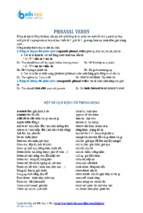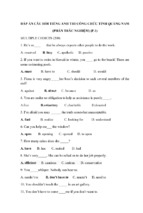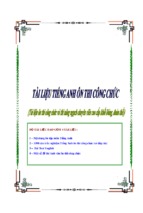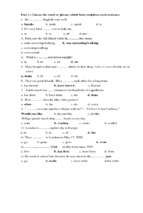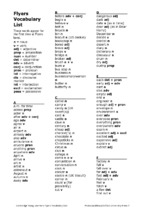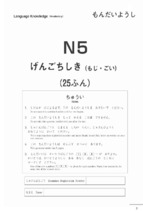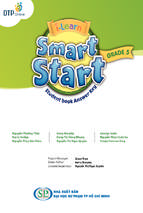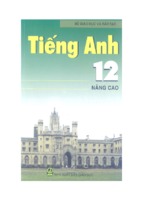DICTIONARY OF
NURSING
Specialist dictionaries
Dictionary of Accounting
Dictionary of Agriculture
Dictionary of Aviation
Dictionary of Banking and Finance
Dictionary of Business
Dictionary of Computing
Dictionary of Economics
Dictionary of Environment and Ecology
Dictionary of Food Science and Nutrition
Dictionary of Human Resources and Personnel Management
Dictionary of ICT
Dictionary of Information and Library Management
Dictionary of Law
Dictionary of Leisure, Travel and Tourism
Dictionary of Marketing
Dictionary of Media Studies
Dictionary of Medical Terms
Dictionary of Politics and Government
Dictionary of Publishing and Printing
Dictionary of Science and Technology
Dictionary of Sport and Exercise Science
978 0 7136 8286 1
978 0 7136 7778 2
978 0 7136 8734 7
978 0 7136 7739 3
978 0 7136 7918 2
978 0 7475 6622 9
978 0 7136 8203 8
978 0 7475 7201 5
978 0 7136 7784 3
978 0 7136 8142 0
978 0 7475 6990 9
978 0 7136 7591 7
978 0 7136 8318 9
978 0 7136 8545 9
978 0 7475 6621 2
978 0 7136 7593 1
978 0 7136 7603 7
978 0 7475 7220 6
978 0 7136 7589 4
978 0 7475 6620 5
978 0 7136 7785 0
Easier English™ titles
Easier English Basic Dictionary
Easier English Basic Synonyms
Easier English Intermediate Dictionary
Easier English Student Dictionary
978 0 7475 6644 1
978 0 7475 6979 4
978 0 7475 6989 3
978 0 7475 6624 3
Check Your English Vocabulary workbooks
Academic English
978 0 7136 8285 4
Banking and Finance
978 0 7136 8250 2
Business and Administration
978 0 7136 7916 8
Computers and Information Technology
978 0 7136 7917 5
Human Resources
978 0 7475 6997 8
IELTS
978 0 7136 7604 4
Law
978 0 7136 7592 4
Living in the UK
978 0 7136 7914 4
Medicine
978 0 7136 7590 0
PET
978 0 7475 6627 4
Phrasal Verbs and Idioms
978 0 7136 7805 5
TOEFLÒ
978 0 7136 8414 8
TOEICÒ
978 0 7136 7508 5
Visit our website for full details of all our books: www.acblack.com
DICTIONARY OF
NURSING
second edition
A & C Black ț London
First edition published in 2003 by
Bloomsbury Publishing Plc.
This second edition published 2007 by
A&C Black Publishers Ltd
38 Soho Square, London W1D 3HB
Copyright © A&C Black 2007
All rights reserved. No part of this publication may be reproduced in any form
or by any means without the prior written permission of the publishers.
A CIP record for this book is available from the British Library
ISBN: 978 0 7136 8287 8
eISBN-13: 978-1-4081-0206-0
Text Production and Proofreading
Joel Adams, Sandra Anderson, Heather Bateman, Emma Djonokusumo,
Ruth Hillmore, Daisy Jackson, Irene Lakhani, Sarah Lusznat,
Katy McAdam, Howard Sargeant
This book is produced using paper that is made from wood grown in
managed, sustainable forests. It is natural, renewable and recyclable. The
logging and manufacturing processes conform to the environmental
regulations of the country of origin.
Text processed and typeset by A&C Black
Printed in Spain by GraphyCems
Preface
This fully-updated dictionary provides the user with a complete guide to the
vocabulary in current use by nurses and other health care professionals.
Over 11,000 terms are explained in clear, straightforward English. Areas covered
include diseases and conditions, instruments, drugs, treatments and patient care, as
well as medical specialisations such as surgery, psychiatry and physiotherapy. Many
informal and everyday terms used by patients in describing their condition are also
included.
A useful supplement also contains a guide to anatomical terms, illustrated with clear
and simple diagrams.
Thanks are due to Glenda Cornwell, Rosemary Cook, Stephen Curtis, Fiona
McIntosh, Lynn Davy and Dinah Jackson for their advice on the first edition of this
text, and to Kathryn Jones for her helpful comments during the production of this
second edition.
Publishers’ Note:
While every effort has been made to be as accurate as possible, the author,
advisors, editors and publishers of this book cannot be held liable for any errors
and omissions, or actions that may be taken as a consequence of using it.
Pronunciation
The following symbols have been used to show the pronunciation of the main
words in the dictionary.
Stress is indicated by a main stress mark ( ) and a secondary stress mark ( ) .
Note that these are only guides, as the stress of the word changes according to its
position in the sentence.
Vowels
ɑ
ɒ
ai
aυ
aiə
aυə
ɔ
ɔi
e
eə
ei
eυ
i
i
ə
i
iə
u
u
υ
υə
Consonants
back
harm
stop
type
how
hire
hour
course
annoy
head
fair
make
go
word
keep
happy
about
fit
near
annual
pool
book
tour
shut
b
d
ð
d
f
h
j
k
l
m
n
ŋ
p
r
s
ʃ
t
tʃ
θ
v
w
x
z
buck
dead
other
jump
fare
gold
head
yellow
cab
leave
mix
nil
sing
print
rest
save
shop
take
change
theft
value
work
loch
measure
zone
Nursing.fm Page 1 Monday, May 14, 2007 4:47 PM
A
AA
AA abbreviation Alcoholics Anonymous
A & E / ei ənd i /, A & E department / ei ənd
i di pɑ tmənt/ noun same as accident and
A & E
|
emergency department
A & E medicine / ei ənd i med(ə)sin/ noun
A & E medicine
the medical procedures used in A & E departments
ab- / b/ prefix away from
ABC / ei bi si / noun the basic initial checks of
a casualty’s condition. Full form airway, breathab-
ABC
ing and circulation
abdomen / bdəmən/ noun a space inside the
abdomen
body below the diaphragm, above the pelvis and
in front of the spine, containing the stomach,
intestines, liver and other vital organs ć pain in
the abdomen (NOTE: For other terms referring to
the abdomen, see words beginning with coeli-,
coelio-.)
abdomin- / bdɒmin/ prefix same as abdomino- (used before vowels)
abdominal / b dɒmin(ə)l/ adjective located in
abdomin-
abdominal
|
the abdomen, or relating to the abdomen
abdominal aorta / b dɒmin(ə)l ei ɔ tə/
noun the part of the aorta which lies between the
diaphragm and the point where the aorta divides
into the iliac arteries. See illustration at KIDNEY in
abdominal aorta
|
|
Supplement
abdominal cavity / b dɒmin(ə)l k viti/
abdominal cavity
|
noun the space in the body below the chest
abdominal pain / b dɒmin(ə)l pein/ noun
abdominal pain
|
pain in the abdomen caused by indigestion or
more serious disorders
abdominal viscera / b dɒmin(ə)l visərə/
plural noun the organs which are contained in the
abdomen, e.g. the stomach, liver and intestines
abdominal wall / b dɒmin(ə)l wɔ l/ noun
muscular tissue which surrounds the abdomen
abdomino- / bdɒminəυ/ prefix referring to
the abdomen
abdominopelvic
/ b dɒminəυ pelvik/
adjective referring to the abdomen and pelvis
abdominoperineal / b dɒminəυperi ni əl/
adjective referring to the abdomen and perineum
abdominoperineal
excision
/ b dɒ
minəυperi ni əl ik si (ə)n/ noun a surgical
abdominal viscera
|
abdominal wall
|
abdomino-
abdominopelvic
|
|
abdominoperineal
|
|
abdominoperineal excision
|
|
|
|
operation that involves cutting out tissue in both
the abdomen and the perineum
abdominoposterior
/ b dɒminəυpɒ
stiəriə/ adjective referring to a position of a
fetus in the uterus, where the fetus’s abdomen is
facing the mother’s back
abdominoscopy / b dɒmi nɒskəpi/ noun an
internal examination of the abdomen, usually
with an endoscope
abdominothoracic / b dɒminəυθɔ r sik/
adjective referring to the abdomen and thorax
abduce / b dju s/ verb same as abduct
abducens nerve / b dju s(ə)nz n v/ noun
the sixth cranial nerve, which controls the muscle
which makes the eyeball turn outwards
abducent / b dju s(ə)nt/ adjective referring
to a muscle which brings parts of the body away
from each other or moves them away from the
central line of the body or a limb. Compare adduabdominoposterior
|
|
abdominoscopy
|
|
abdominothoracic
|
|
abduce
|
abducens nerve
|
abducent
|
cent
abduct
abduct / b d kt/ verb (of a muscle) to pull a
leg or arm in a direction which is away from the
centre line of the body, or to pull a toe or finger
away from the central line of a leg or arm. Compare adduct
abduction / b d kʃən/ noun the movement of
a part of the body away from the centre line of the
body or away from a neighbouring part. Opposite
adduction. See illustration at ANATOMICAL
TERMS in Supplement
abductor / b d ktə/, abductor muscle / b
d ktə m s(ə)l/ noun a muscle which pulls a
part of the body away from the centre line of the
body or away from a neighbouring part. Opposite
|
abduction
|
abductor
|
|
adductor
aberrant
aberrant / berənt/ adjective not usual or
expected
aberration / bə reiʃ(ə)n/ noun an action or
growth which is not usual or expected
ablation /ə bleiʃ(ə)n/ noun the removal of an
organ or of a part of the body by surgery
abnormal / b nɔ m(ə)l/ adjective not usual ć
abnormal behaviour ć an abnormal movement
abnormality / bnɔ m liti/ noun a form or
condition which is not usual (NOTE: For other
|
aberration
|
ablation
|
abnormal
|
abnormality
|
Nursing.fm Page 2 Monday, May 14, 2007 4:47 PM
abocclusion
2
terms referring to abnormality, see words beginning with terat-, terato-.)
abocclusion / bɒ klu (ə)n/ noun a condiabocclusion
|
tion in which the teeth in the top and bottom jaws
do not touch
abort /ə bɔ t/ verb to eject an embryo or fetus,
or to cause an embryo or fetus to be ejected, and
so end a pregnancy before the fetus is fully developed
abortifacient /ə bɔ ti feiʃ(ə)nt/ noun a drug
or instrument which provokes an abortion
abortion /ə bɔ ʃ(ə)n/ noun a situation where a
fetus leaves the uterus before it is fully developed,
especially during the first 28 weeks of pregnancy,
or a procedure which causes this to happen
abortive /ə bɔ tiv/ adjective not successful ć
an abortive attempt
abortus /ə bɔ təs/ noun a fetus which is
expelled during an abortion or miscarriage
abortus fever /ə bɔ təs fi və/ noun same as
abort
|
abortifacient
|
|
abortion
|
abortive
|
abortus
|
abortus fever
|
brucellosis
ABO system
ABO system / ei bi əυ sistəm/ noun a system of classifying blood groups. ı blood group
abrasion /ə brei (ə)n/ noun a condition in
which the surface of the skin has been rubbed off
by a rough surface and bleeds
abreaction / bri kʃən/ noun the treatment
of a person with a neurosis by making him or her
think again about past bad experiences
abruptio placentae /ə br ptiəυ plə senti /
noun an occasion when the placenta suddenly
comes away from the uterus earlier than it should,
often causing shock and bleeding
abscess / bses/ noun a painful swollen area
where pus forms ć She had an abscess under a
tooth. ć The doctor decided to lance the abscess.
abrasion
|
abreaction
|
abruptio placentae
|
|
abscess
(NOTE: The formation of an abscess is often
accompanied by a high temperature. The plural
is abscesses.)
absorbable suture /əb zɔ bəb(ə)l su tʃə/
noun a suture which will eventually be absorbed
absorbable suture
|
into the body, and does not need to be removed
absorbent cotton /əb zɔ bənt kɒt(ə)n/
noun a soft white material used as a dressing to
put on wounds
absorption /əb zɔ pʃən/ noun the process by
which a liquid is taken into a solid
abstinence / bstinəns/ noun a deliberate act
of not doing something over a period of time,
especially not eating or drinking ć abstinence
from alcohol
abulia /ə bu liə/ noun a lack of willpower
abuse noun /ə bju s/ 1. the act of using something wrongly ć the abuse of a privilege 2. the
illegal use of a drug or overuse of alcohol ć substance abuse 3. same as child abuse 4. bad treatment of a person ć physical abuse ć sexual
abuse í verb /ə bju z/ 1. to use something
absorbent cotton
|
absorption
|
abstinence
abulia
|
abuse
|
|
wrongly ć Heroin and cocaine are drugs which
are commonly abused. 2. to treat someone badly
ć sexually abused children ć He had physically
abused his wife and child.
a.c. adverb (used on prescriptions) before food.
Full form ante cibum
acanthosis /ə k n θəυsis/ noun a disease of
the prickle cell layer of the skin, where warts
appear on the skin or inside the mouth
acapnia /ei k pniə/ noun the condition of not
having enough carbon dioxide in the blood and
tissues
acaricide /ə k risaid/ noun a substance which
kills mites or ticks
acatalasia /ei k tə leiziə/ noun an inherited
condition which results in a lack of catalase in all
tissue
accessory /ək sesəri/ noun something which
helps something else to happen or operate, but
may not be very important in itself í adjective
helping something else to happen or operate
accident / ksid(ə)nt/ noun 1. an unpleasant
event which happens suddenly and harms someone’s health ć She had an accident in the kitchen
and had to go to hospital. ć Three people were
killed in the accident on the motorway. 2. chance,
or something which happens by chance ć I met
her by accident at the bus stop.
accidental injury / ksident(ə)l ind əri/
noun an injury that happens to someone in an
accident
accident and emergency department
/ ksid(ə)nt ənd i m d ənsi di pɑ tmənt/
noun the part of a hospital which deals with people who need urgent treatment because they have
had accidents or are in sudden serious pain.
Abbreviation A & E
accident form / ksid(ə)nt fɔ m/, accident
report form / ksid(ə)nt ri pɔ t fɔ m/ noun a
form to be filled in with details of an accident
accident prevention / ksid(ə)nt pri
venʃən/ noun the work of taking action or
changing procedures to prevent accidents from
happening
accident ward / ksid(ə)nt wɔ d/ noun a
ward for urgent accident victims. Also called
a.c.
acanthosis
|
|
acapnia
|
acaricide
|
acatalasia
|
|
accessory
|
accident
accidental injury
accident and emergency department
|
|
accident form
|
accident prevention
|
accident ward
casualty ward
accommodation
accommodation /ə kɒmə deiʃ(ə)n/, accommodation reflex /ə kɒmə deiʃ(ə)n ri fleks/
noun (of the lens of the eye) the ability to focus
on objects at different distances, using the ciliary
muscle
accommodative squint /ə kɒmədeitiv
skwint/ noun a squint when the eye is trying to
focus on an object which is very close
accouchement /ə ku ʃmɒŋ/ noun the time
when a woman is being looked after because her
baby is being born, or has just been born
|
|
|
|
accommodative squint
|
accouchement
|
Nursing.fm Page 3 Monday, May 14, 2007 4:47 PM
3
accountability
accountability /ə kaυntə biliti/ noun the state
of being responsible to someone else for an action
ć developing and maintaining standards of
accountability
accountable /ə kaυntəb(ə)l/ adjective responsible to someone else for an action ć accountable
to the public
accretion /ə kri ʃ(ə)n/ noun a gradual increase
in size, as through growth or external addition ć
an accretion of calcium around the joint
acebutolol / si bju təlɒl/ noun a drug which
reduces both the heart rate and how strongly the
heart muscles contract, used in the treatment of
high blood pressure and irregular heart rhythms
ACE inhibitor / eis in hibitə/ noun same as
|
|
accountable
|
accretion
|
acebutolol
|
ACE inhibitor
|
angiotensin-converting enzyme inhibitor
acephalus /ei sefələs/ noun a fetus born withacephalus
|
out a head
acetabuloplasty
/ si t bjυləυ pl sti/
noun a surgical operation to repair or rebuild the
acetabulum
acetabulum / si t bjυləm/ noun the part of
the pelvic bone, shaped like a cup, into which the
head of the femur fits to form the hip joint. Also
called cotyloid cavity (NOTE: The plural is
acetabuloplasty
|
|
acetabulum
|
acetabula.)
acid reflux
ache
ache /eik/ noun a pain which goes on for a time,
but is not very severe ć He complained of various
aches and pains. í verb to have a pain in part of
the body ć His tooth ached so much he went to
the dentist.
Achilles tendon /ə kili z tendən/ noun a tendon at the back of the ankle which connects the
calf muscles to the heel and which acts to pull up
the heel when the calf muscle is contracted
achillorrhaphy / ki lɔ rəfi/ noun a surgical
operation to stitch a torn Achilles tendon
achillotomy / ki lɒtəmi/ noun a surgical
operation to divide the Achilles tendon
achlorhydria / eiklɔ haidriə/ noun a condition in which the gastric juices do not contain
hydrochloric acid, a symptom of stomach cancer
or pernicious anaemia
acholia /ei kəυliə/ noun the absence or failure
of the secretion of bile
acholuria / eikɒ lu riə/ noun the absence of
bile colouring in the urine
acholuric jaundice / eikəlu rik d ɔ ndis/
noun a disease where unusually round red blood
cells form, leading to anaemia, an enlarged spleen
and the formation of gallstones. Also called
Achilles tendon
|
achillorrhaphy
|
achillotomy
|
achlorhydria
|
acholia
|
acholuria
|
acholuric jaundice
hereditary spherocytosis
achondroplasia / eikɒndrə pleiziə/ noun an
achondroplasia
acetaminophen
acetaminophen /ə si tə minəfən/ noun US
same as paracetamol
acetazolamide /ə si tə zɒləmaid/ noun a
drug which helps a person to produce more urine,
used in the treatment of oedema, glaucoma and
epilepsy
acetonaemia /ə si təυ ni miə/ same as keto|
|
acetazolamide
|
|
acetonaemia
|
|
naemia
|
inherited condition in which the long bones in the
arms and legs do not grow fully while the rest of
the bones in the body grow as usual, resulting in
dwarfism
achromatopsia / eikrəυmə tɒpsiə/ noun a
rare condition in which a person cannot see any
colours, but only black, white and shades of grey
achy / eiki/ adjective feeling aches all over the
body (informal)
aciclovir /ei saikləυviə/ noun a drug that is
effective against herpesviruses. Also called acyachromatopsia
|
achy
acetone
acetone / sitəυn/ noun a colourless volatile
substance formed in the body after vomiting or
during diabetes. ı ketone
acetonuria /ə si təυ nju riə/ noun the presence of acetone in the urine, shown by the fact
that the urine gives off a sweet smell
acetylcholine / sitail kəυli n/ noun a substance released from nerve endings, which allows
nerve impulses to move from one nerve to another
or from a nerve to the organ it controls
acetonuria
|
|
acetylcholine
|
COMMENT: Acetylcholine receptors are of
two types, muscarinic, found in parasympathetic post-ganglionic nerve junctions, and
nicotinic, found at neuromuscular junctions
and in autonomic ganglia. Acetylcholine acts
on both types of receptors, but other drugs
act on one or the other.
acetylcoenzyme A / sitailkəυ enzaim ei/
noun a compound produced in the metabolism of
acetylcoenzyme A
|
carbohydrates, fatty acids and amino acids
acetylsalicylic
acid / sitail s ləsilik
sid/ noun aspirin
achalasia / kə leiziə/ noun the condition of
being unable to relax the muscles
acetylsalicylic acid
|
achalasia
|
aciclovir
|
clovir
acidaemia
acidaemia / si di miə/ noun a state in which
the blood has too much acid in it. It is a feature of
untreated severe diabetes.
acid–base balance / sid beis b ləns/
noun the balance between acid and base, i.e. the
pH level, in plasma
acidity /ə siditi/ noun 1. the level of acid in a
liquid ć The alkaline solution may help to reduce
acidity. 2. same as hyperacidity
acidosis / si dəυsis/ noun 1. a condition
when there are more acid waste products such as
urea than usual in the blood because of a lack of
alkali 2. same as acidity
acidotic / si dɒtik/ adjective relating to acidosis
acid reflux / sid ri fl ks/ noun a condition
caused by a faulty muscle in the oesophagus
allowing the acid in the stomach to pass into the
oesophagus
|
acid–base balance
acidity
|
acidosis
|
acidotic
|
acid reflux
Nursing.fm Page 4 Monday, May 14, 2007 4:47 PM
acid stomach
4
acid stomach
acid stomach / sid st mək/ noun same as
hyperacidity
acinus / sinəs/ noun 1. a tiny sac which forms
part of a gland 2. part of a lobule in the lung
(NOTE: The plural is acini.)
acne / kni/ noun an inflammation of the sebaacinus
acne
ceous glands during puberty which makes blackheads appear on the skin, usually on the face, neck
and shoulders. These blackheads often then
become infected. ć She is using a cream to clear
up her acne.
acne rosacea / kni rəυ zeiʃə/ noun same as
acne rosacea
|
rosacea
acne vulgaris
acne vulgaris / kni vυl ɑ ris/ noun same as
|
acne
acoustic
acoustic /ə ku stik/ adjective relating to sound
or hearing
acoustic nerve /ə ku stik n v/ noun the
eighth cranial nerve which governs hearing and
balance
acquired /ə kwaiəd/ adjective referring to a
condition which is neither congenital nor hereditary and which a person develops after birth in
reaction to his or her environment
acquired immunity /ə kwaiəd i mju niti/
noun an immunity which a body acquires from
having caught a disease or from immunisation,
not one which is congenital
acquired immunodeficiency syndrome /ə
kwaiəd imjυnəυdi fiʃ(ə)nsi sindrəυm/,
acquired immune deficiency syndrome /ə
kwaiəd im ju n di fiʃ(ə)nsi sindrəυm/ noun
a viral infection which breaks down the body’s
immune system. Abbreviation AIDS. ı HIV
acrivastine /ə krivə sti n/ noun a drug which
reduces the amount of histamine produced by the
body. It is used in the treatment of rhinitis, urticaria and eczema.
acro- / krəυ/ prefix referring to a point or tip
acrocephalia / krəυsə feiliə/ noun same as
|
acoustic nerve
|
acquired
|
acquired immunity
|
|
acquired immunodeficiency syndrome
|
|
|
|
|
acrivastine
|
acro-
acrocephalia
|
oxycephaly
acrocyanosis
acrocyanosis / krəυsaiə nəυsis/ noun a
blue coloration of the extremities, i.e. the fingers,
toes, ears and nose, which is due to poor circulation
acrodynia / krəυ diniə/ noun a children’s
disease, caused by an allergy to mercury, where
the child’s hands, feet and face swell and become
pink, and the child is also affected with fever and
loss of appetite. Also called erythroedema, pink
|
acrodynia
|
disease
acromegaly
acromegaly / krəυ me əli/ noun a disease
caused by excessive quantities of growth hormone produced by the pituitary gland, causing a
slow enlargement of the hands, feet and jaws in
adults
acromioclavicular
/ krəυmaiəυklə
vikjυlə/ adjective relating to the acromion and
the clavicle
|
acromioclavicular
|
acromion
acromion /ə krəυmiən/ noun the pointed top of
the scapula, which forms the tip of the shoulder
acronyx / krɒniks, eikrɒniks/ noun a condition in which a nail grows into the flesh
acroparaesthesia / krəυp ris θi ziə/ noun
a condition in which the patient experiences sharp
pains in the arms and numbness in the fingers
after sleep
acrophobia / krə fəυbiə/ noun a fear of
heights
acrosclerosis / krəυsklə rəυsis/ noun sclerosis which affects the extremities
ACTH abbreviation adrenocorticotrophic hormone
actinomycin / ktinəυ maisin/ noun an antibiotic used in the treatment of children with cancer
actinomycosis / ktinəυmai kəυsis/ noun a
fungal disease transmitted to humans from cattle,
causing abscesses in the mouth and lungs (pulmonary actinomycosis) or in the ileum (intestinal actinomycosis)
action potential / kʃən pə tenʃəl/ noun a
temporary change in electrical potential which
occurs between the inside and the outside of a
nerve or muscle fibre when a nerve impulse is
sent
active immunity / ktiv i mju niti/ noun
immunity which is acquired by catching and surviving an infectious disease or by vaccination
with a weakened form of the disease, which
makes the body form antibodies
activities of daily living / k tivitiz əv deili
liviŋ/ noun a scale used by geriatricians and
occupational therapists to assess the capacity of
elderly or disabled people to live independently.
Abbreviation ADLs
activity / k tiviti/ noun 1. what someone does
ć difficulty with activities such as walking and
dressing 2. the characteristic behaviour of a
chemical ć The drug’s activity only lasts a few
hours. ˽ antibacterial activity effective action
against bacteria
acuity /ə kju iti/ noun keenness of sight, hearing or intellect
acupressure / kjυpreʃə/ noun a treatment
which is based on the same principle as acupuncture in which, instead of needles, fingers are used
on specific points on the body, called pressure
points
acupuncture / kjυp ŋktʃə/ noun a treatment based on needles being inserted through the
skin into nerve centres in order to relieve pain or
treat a disorder
acute /ə kju t/ adjective referring to a disease or
condition which develops rapidly and can be dangerous ć an acute abscess Opposite chronic
|
acronyx
acroparaesthesia
|
acrophobia
|
acrosclerosis
|
ACTH
actinomycin
|
actinomycosis
|
action potential
|
active immunity
|
activities of daily living
|
activity
|
acuity
|
acupressure
acupuncture
acute
|
Nursing.fm Page 5 Monday, May 14, 2007 4:47 PM
5
acute abdomen
acute abdomen /ə kju t bdəmən/ noun
any serious condition of the abdomen which
requires surgery
acute bed /ə kju t bed/ noun a hospital bed
reserved for people requiring immediate treatment
acute care /ə kju t keə/ noun medical or surgical treatment in a hospital, usually for a short
period, for a patient with a sudden severe illness
or injury
acute disseminated encephalomyelitis /ə
kju t di semineitid en kefələυmaiə laitis/
noun an encephalomyelitis or myelitis believed to
result from an autoimmune attack on the myelin
of the central nervous system
acute glaucoma /ə kju t lɔ kəυmə/ noun
same as angle-closure glaucoma
acute hospital /ə kju t hɒspit(ə)l/ noun a
hospital where people go for major surgery or
intensive care of medical or surgical conditions
acutely /ə kju tli/ adverb 1. having or causing
a suddenly developing medical condition ć
acutely ill patients ć acutely toxic chemicals 2.
extremely (informal)
acute respiratory distress syndrome /ə
kju t ri spirət(ə)ri di stres sindrəυm/ noun
an infection of the lungs, often following injury,
which prevents them functioning properly.
Abbreviation ARDS
acute rheumatism /ə kju t ru mətiz(ə)m/
noun same as rheumatic fever
acute rhinitis /ə kju t rai naitis/ noun a virus
infection which causes inflammation of the
mucous membrane in the nose and throat
acute suppurative arthritis /ə kju t
s pjυrətiv ɑ θ raitis/ noun same as pyarthro|
acute bed
|
acute care
|
acute disseminated encephalomyelitis
|
|
|
|
acute glaucoma
|
|
acute hospital
|
acutely
|
acute respiratory distress syndrome
|
|
|
acute rheumatism
|
acute rhinitis
|
|
acute suppurative arthritis
|
|
sis
adenoids
ADD
ADD abbreviation attention deficit disorder
Addison’s anaemia / dis(ə)nz ə ni miə/
same as pernicious anaemia [Described 1849.
Addison’s anaemia
|
After Thomas Addison (1793–1860), from
Northumberland, founder of the science of
endocrinology.]
Addison’s disease / dis(ə)nz di zi z/ noun
Addison’s disease
|
a disease of the adrenal glands, causing a change
in skin colour to yellow and then to dark brown
and resulting in general weakness, anaemia, low
blood pressure and wasting away. Treatment is
with corticosteroid injections. [Described 1849.
After Thomas Addison (1793–1860), from
Northumberland, founder of the science of
endocrinology.]
adducent /ə dju s(ə)nt/ adjective referring to a
adducent
|
muscle which brings parts of the body together or
moves them towards the central line of the body
or a limb. Compare abducent
adduct /ə d kt/ verb (of a muscle) to pull a leg
or arm towards the central line of the body, or to
pull a toe or finger towards the central line of a leg
or arm. Opposite abduct
adducted /ə d ktid/ adjective referring to a
body part brought towards the middle of the body
adduction /ə d kʃən/ noun the movement of a
part of the body towards the midline or towards a
neighbouring part. Compare abduction. See
illustration at ANATOMICAL TERMS in Supplement
adductor /ə d ktə/, adductor muscle /ə
d ktə m s(ə)l/ noun a muscle which pulls a
part of the body towards the central line of the
body. Opposite abductor
aden- / din/ prefix same as adeno- (used
adduct
|
adducted
|
adduction
|
adductor
|
|
aden-
before vowels)
adenectomy
adenectomy / di nektəmi/ noun the surgical
removal of a gland
adenine / dəni n/ noun one of the four basic
chemicals in DNA
adenitis / di naitis/ noun inflammation of a
gland or lymph node. ı lymphadenitis
adeno- / dinəυ/ prefix referring to glands
adenocarcinoma
/ dinəυkɑ si nəυmə/
noun a malignant tumour of a gland
adenohypophysis
/ dinəυhai pɒfisis/
noun the front lobe of the pituitary gland which
secretes most of the pituitary hormones
adenoid / dinɔid/ adjective like a gland
adenoidal / di nɔid(ə)l/ adjective referring to
the adenoids
adenoidal tissue / dinɔid(ə)l tiʃu / noun
same as adenoids
adenoidectomy / dinɔi dektəmi/ noun the
surgical removal of the adenoids
adenoids / dinɔidz/ plural noun a mass of tissue at the back of the nose and throat that can
restrict breathing if enlarged. Also called pha|
adenine
acute toxicity
acute toxicity /ə kju t tɒk sisiti/ noun a level
of concentration of a toxic substance which
makes people seriously ill or can cause death
acyclovir /ei saikləυviə/ noun same as aciclo|
|
acyclovir
|
vir
adenitis
|
adeno-
adenocarcinoma
acystia
acystia /ei sistiə/ noun a condition in which a
baby is born without a bladder
Adam’s apple / dəmz p(ə)l/ noun a part of
the thyroid cartilage which projects from the neck
below the chin in a man. Also called laryngeal
|
Adam’s apple
prominence
adapt /ə d pt/ verb 1. to change one’s ideas or
behaviour to fit into a new situation ć She has
adapt
|
adapted very well to her new job in the children’s
hospital. 2. to change something to make it more
useful ć The brace has to be adapted to fit the
patient.
adaptation / d p teiʃ(ə)n/ noun 1. a change
which has been or can be made to something 2.
the act of changing something so that it fits a new
situation
adaptation
|
|
|
adenohypophysis
|
adenoid
adenoidal
|
adenoidal tissue
adenoidectomy
|
adenoids
ryngeal tonsils
|
Nursing.fm Page 6 Monday, May 14, 2007 4:47 PM
adenoid vegetation
6
adenoid vegetation
adenoid vegetation / dinɔid ved ə
teiʃ(ə)n/ noun a condition in children where the
adenoidal tissue is covered with growths and can
block the nasal passages or the Eustachian tubes
adenolymphoma / dinəυlim fəυmə/ noun
a benign tumour of the salivary glands
adenoma / di nəυmə/ noun a benign tumour
of a gland
adenomyoma / dinəυmai əυmə/ noun a
benign tumour made up of glands and muscle
adenopathy / di nɒpəθi/ noun a disease of a
gland
adenosclerosis / dinəυsklə rəυsis/ noun
the hardening of a gland
adenosine /ə denəυsi n/ noun a drug used to
treat an irregular heartbeat
adenosine diphosphate /ə denəυsi n dai
fɒsfeit/ noun a chemical compound which provides energy for processes to take place within
living cells, formed when adenosine triphosphate
reacts with water. Abbreviation ADP
adenosine triphosphate /ə denəυsi n trai
fɒsfeit/ noun a chemical which occurs in all
cells, but mainly in muscle, where it forms the
energy reserve. Abbreviation ATP
adenosis / di nəυsis/ noun any disease or
disorder of the glands
adenovirus / dinəυ vairəs/ noun a virus
which produces upper respiratory infections and
sore throats and can cause fatal pneumonia in
infants
ADH abbreviation antidiuretic hormone
ADHD abbreviation attention deficit hyperactivity disorder
adhesion /əd hi (ə)n/ noun a stable connection between two parts in the body, either in a
healing process or between parts which are not
usually connected
adhesive dressing /əd hi siv dresiŋ/ noun a
dressing with a sticky substance on the back so
that it can stick to the skin
adipose / dipəυs/ adjective containing fat, or
made of fat
adipose degeneration / dipəυs di d enə
reiʃ(ə)n/ noun an accumulation of fat in the cells
of an organ such as the heart or liver, which makes
the organ less able to perform its proper function.
Also called fatty degeneration
adiposis / di pəυsis/ noun a state where too
much fat is accumulated in the body
adiposis dolorosa / di pəυsis dɒlə rəυsə/
noun a disease of middle-aged women in which
painful lumps of fatty substance form in the body.
Also called Dercum’s disease
adiposogenitalis / di pəυsəυ d eni teilis/
noun same as Fröhlich’s syndrome
adiposuria /ədipsəυ ju riə/ noun the presence
of fat in the urine
|
adenolymphoma
|
adenoma
|
adenomyoma
|
adenopathy
|
adenosclerosis
|
adenosine
|
adenosine diphosphate
|
|
adenosine triphosphate
|
|
adenosis
|
adenovirus
|
ADH
ADHD
adhesion
|
adhesive dressing
|
adipose
adipose degeneration
|
|
adiposis
|
adiposis dolorosa
|
|
adiposogenitalis
|
adiposuria
|
|
|
adiposus / di pəυsəs/ panniculus adipoadiposus
|
sus
aditus
aditus / ditəs/ noun an opening or entrance to
a passage
adjustment /ə d stmənt/ noun a specific
directional high-speed movement of a joint performed by a chiropractor
adjuvant / d υvənt/ adjective referring to
treatment by drugs or radiation therapy after surgery for cancer í noun a substance added to a
drug to enhance the effect of the main ingredient
adjuvant therapy / d υvənt θerəpi/ noun
therapy using drugs or radiation after cancer surgery
ADLs abbreviation activities of daily living
administer /əd ministə/ verb to give someone
medicine or a treatment ˽ to administer orally to
give a medicine by mouth
admission /əd miʃ(ə)n/ noun the act of being
registered as a hospital patient
adnexa / d neksə/ plural noun structures
attached to an organ
adolescence / də les(ə)ns/ noun the period
of life when a child is developing into an adult
adolescent / də les(ə)nt/ noun a person who
is at the stage of life when he or she is developing
into an adult í adjective developing into an adult,
or occurring at that stage of life ć adolescent
boys and girls ć adolescent fantasies
adoptive
immunotherapy
/ə dɒptiv
imjυnə θerəpi/ noun a treatment for cancer in
which the patient’s own white blood cells are used
to attack cancer cells
ADP abbreviation adenosine diphosphate
adrenal /ə dri n(ə)l/ adjective situated near the
kidney í noun same as adrenal gland
adrenalectomy /ə dri nə lektəmi/ noun the
surgical removal of one of the adrenal glands
adrenal gland /ə dri n(ə)l l nd/ noun one of
two endocrine glands at the top of the kidneys
which secrete cortisone, adrenaline and other hormones. Also called adrenal body, adrenal. See
illustration at KIDNEY in Supplement
adrenaline /ə drenəlin/ noun a hormone
secreted by the medulla of the adrenal glands
which has an effect similar to stimulation of the
sympathetic nervous system
adrenal medulla /ə dri n(ə)l me d lə/ noun
the inner part of the adrenal gland which secretes
adrenaline and noradrenaline. Also called supraadjustment
|
adjuvant
adjuvant therapy
ADLs
administer
|
admission
|
adnexa
|
adolescence
|
adolescent
|
adoptive immunotherapy
|
|
ADP
adrenal
|
adrenalectomy
|
|
adrenal gland
|
adrenaline
|
adrenal medulla
|
|
renal medulla
adrenergic
adrenergic / drə n d ik/ adjective referring
to a neurone or receptor which is stimulated by
adrenaline. ı beta blocker
adrenergic receptor / drən d ik ri
septə/ noun same as adrenoceptor
|
adrenergic receptor
|
COMMENT: Three types of adrenergic receptor act in different ways when stimulated by
Nursing.fm Page 7 Monday, May 14, 2007 4:47 PM
7
adrenaline. Alpha receptors constrict the
bronchi, beta 1 receptors speed up the
heartbeat and beta 2 receptors dilate the
bronchi.
adventitious bursa / dvəntiʃəs b sə/
noun a bursa which develops as a result of contin-
adrenoceptor /ə drenəυ septə/ noun a cell or
neurone which is stimulated by adrenaline. Also
called adrenoreceptor, adrenergic receptor
adrenocortical /ə dri nəυ kɔ tik(ə)l/ adjective relating to the cortex of the adrenal glands
adrenocorticotrophic hormone /ə dri nəυ
kɔ təkəυtrɒfik hɔ məυn/ noun a hormone
secreted by the pituitary gland, which makes the
cortex of the adrenal glands produce corticosteroids. Abbreviation ACTH. Also called cortico|
adrenocortical
|
|
adrenocorticotrophic hormone
|
ued pressure or rubbing
adverse / dv s/ adjective harmful or unfavourable
adverse occurrence / dv s ə k rəns/
noun a harmful event which occurs during treatment
advocacy / dvəkəsi/ noun active support for
something, especially in order to help people who
would have difficulty in gaining attention without
your help
adynamic ileus /ei dain mik iliəs/ noun
same as paralytic ileus
aegophony /i ɒfəni/ noun a high sound of
the voice heard through a stethoscope, where
there is fluid in the pleural cavity
aer- /eə/ prefix same as aero- (used before vowadverse
adrenoceptor
|
afferent nerve
adventitious bursa
|
trophin
adverse occurrence
|
advocacy
adynamic ileus
|
aegophony
|
adrenocorticotrophin
adrenocorticotrophin /ə dri nəυkɔ təkəυ
trəυfin/ noun adrenaline extracted from animals’ adrenal glands and used to prevent haemorrhages or to help asthmatic conditions
adrenogenital
syndrome
/ə dri nəυ
d enit(ə)l sindrəυm/ noun a condition caused
by overproduction of male sex hormones, where
boys show rapid sexual development and females
develop male characteristics
adrenolytic /ədri nəυ litik/ adjective acting
against the secretion of adrenaline
adrenoreceptor /ə drenəυri septə/ noun
same as adrenoceptor
adsorbent / d sɔ bənt/ adjective being capable of adsorption
adsorption / d sɔ pʃ(ə)n/ noun the attachment of one substance to another, often the bonding of a liquid with a gas or vapour which touches
its surface
adult / d lt/ adjective grown-up ć Adolescents reach the adult stage about the age of eighteen or twenty. í noun someone who is no longer
a child
adult coeliac disease / d lt si li k di
zi z/ noun a condition in adults where the villi in
the intestine become smaller and so reduce the
surface which can absorb nutrients
adult dentition / d lt den tiʃ(ə)n/ noun the
32 teeth which an adult has
adulteration /ə d ltə reiʃ(ə)n/ noun the act of
making something less pure by adding another
substance
adult respiratory distress syndrome
/ d lt ri spirət(ə)ri di stres sindrəυm/ noun
a description of various lung infections which
reduce the lungs’ efficiency. Abbreviation ARDS
advanced trauma life support /əd vɑ nst
trɔ ma laif sə pɔ t/ noun the management of a
trauma patient during the critical first hour after
injury. Abbreviation ATLS
adventitious / dvən tiʃəs/ adjective on the
outside or in an unusual place
|
|
aer-
els)
adrenogenital syndrome
|
|
adrenolytic
|
adrenoreceptor
|
|
adsorbent
|
adsorption
|
adult
adult coeliac disease
|
adult dentition
|
adulteration
|
|
adult respiratory distress syndrome
|
|
advanced trauma life support
|
|
adventitious
|
aeration
aeration /eə reiʃ(ə)n/ noun the adding of air or
oxygen to a liquid
aero- /eərəυ/ prefix referring to air
aeroba /eə rəυbə/, aerobe / eərəυb/ noun a
tiny organism which needs oxygen to survive
aerobic /eə rəυbik/ adjective needing oxygen
to live, or taking place in the presence of oxygen
aerogenous /eə rɒd ənəs/ adjective referring
to a bacterium which produces gas
aerophagia / eərə feid ə/, aerophagy /eə
rɒfəd i/ noun the habit of swallowing air when
suffering from indigestion, so making the stomach pains worse
aerosol / eərəsɒl/ noun tiny particles of a liquid
such as a drug or disinfectant suspended in a gas
under pressure in a container and used as a spray
aetiology / i ti ɒləd i/ noun 1. the cause or origin of a disease 2. the study of the causes and origins of diseases
AfC abbreviation Agenda for Change
afebrile /ei fi brail/ adjective with no fever
affect /ə fekt/ verb to make something or someone change, especially to have a bad effect on
something or someone ć Some organs are rapidly affected if the patient lacks oxygen for even a
short time. í noun same as affection
affection /ə fekʃ(ə)n/, affect /ə fekt/ noun the
general state of a person’s emotions
affective /ə fektiv/ adjective relating to a person’s moods or feelings
affective disorder /ə fektiv dis ɔ də/ noun a
condition which changes someone’s mood, making him or her depressed or excited
afferent / f(ə)rənt/ adjective conducting liquid or electrical impulses towards the inside.
Opposite efferent
afferent nerve / f(ə)rənt n v/ noun same
as sensory nerve
|
aero-
aeroba
|
aerobic
|
aerogenous
|
aerophagia
|
|
aerosol
aetiology
|
AfC
afebrile
|
affect
|
affection
|
|
affective
|
affective disorder
|
afferent
afferent nerve
|
Nursing.fm Page 8 Monday, May 14, 2007 4:47 PM
afferent vessel
8
afferent vessel
afferent vessel / f(ə)rənt ves(ə)l/ noun a
tube which brings lymph to a gland
affinity /ə finiti/ noun an attraction between
two substances
aflatoxin / flə tɒksin/ noun a poison produced by some moulds in some crops such as peanuts
African
trypanosomiasis
/ frikən
tripənəυsəυ maiəsis/ noun same as sleeping
affinity
|
aflatoxin
|
African trypanosomiasis
|
sickness
afterbirth
afterbirth / ɑ ftəb θ/ noun the tissues, including the placenta and umbilical cord, which are
present in the uterus during pregnancy and are
expelled after the birth of a baby
aftercare / ɑ ftəkeə/ noun 1. the care of a person who has had an operation. Aftercare treatment involves changing dressings and helping
people to look after themselves again. 2. the care
of a mother who has just given birth
after-effect / ɑ ftər i fekt/ noun a change
which appears only some time after the cause ć
The operation had some unpleasant after-effects.
after-image / ɑ ftər imid / noun an image of
an object which remains in a person’s sight after
the object itself has gone
afterpains / ɑ ftəpeinz/ plural noun regular
pains in the uterus which are sometimes experienced after childbirth
afunctional /ei f ŋkʃən(ə)l/ adjective which
does not function properly
agalactia / ei ə l ktiə/ noun a condition in
which a mother is unable to produce milk after
childbirth
agammaglobulinaemia /ei
mə lɒbjυli
ni miə/ noun a deficiency or absence of immunoglobulins in the blood, which results in a
reduced ability to provide immune responses
agar / ei ɑ /, agar agar / ei ə ei ə/ noun a
culture medium based on an extract of seaweed
used for growing microorganisms in laboratories
age /eid / noun the number of years which a
person has lived ć What’s your age on your next
birthday? ć He was sixty years of age. ć The size
varies according to age. í verb to grow old
age group / eid ru p/ noun all the people of
a particular age or within a particular set of ages
ć the age group 20–25
agency / eid ənsi/ noun 1. an organisation
which carries out work on behalf of another
organisation, e.g. one which recruits and employs
nurses and supplies them to hospitals temporarily
when full-time nursing staff are unavailable 2. the
act of causing something to happen ć The disease
develops through the agency of bacteria present
in the bloodstream.
Agenda for Change /ə d endə fə tʃeind /
noun a pay and reform package designed to
ensure that all directly employed NHS staff are
paid on the basis of equal pay for work of equal
aftercare
after-effect
|
after-image
afterpains
afunctional
agalactia
|
agammaglobulinaemia
|
agar
age
age group
agency
Agenda for Change
|
|
|
value, implemented in December 2004. Abbreviation AfC
agenesis /ei d enəsis/ noun the absence of an
organ, resulting from a failure in embryonic
development
agent / eid ənt/ noun 1. a chemical substance
which makes another substance react 2. a substance or organism which causes a disease or condition 3. a person who acts as a representative of
another person or carries out some kinds of work
on his or her behalf
agglutination /ə lu ti neiʃ(ə)n/ noun the act
of coming together or sticking to one another to
form a clump, as of bacteria cells in the presence
of serum, or blood cells when blood of different
types is mixed
agglutinin /ə lu tinin/ noun a factor in a
serum which makes cells stick together in clumps
agglutinogen /
lu tinəd ən/ noun a factor
in red blood cells which reacts with a specific
agglutinin in serum
agitation / d i teiʃ(ə)n/ noun a state of being
very nervous and anxious
aglossia /ei lɒsiə/ noun the condition of not
having a tongue from birth
agnosia /
nəυziə/ noun a brain disorder in
which a person fails to recognise places, people,
tastes or smells which they used to know well
agonist /
ənist/ noun 1. a muscle which
causes part of the body to move and another muscle to relax when it contracts. Also called prime
mover 2. a substance which produces an observable physiological effect by acting through specific receptors. ı antagonist
agony /
əni/ noun a very severe physical or
emotional pain ć He lay in agony on the floor. ć
She suffered the agony of waiting for weeks until
her condition was diagnosed.
agoraphobia /
(ə)rə fəυbiə/ noun a fear of
being in open spaces. Compare claustrophobia
agoraphobic /
(ə)rə fəυbik/ adjective
afraid of being in open spaces. Compare clausagenesis
|
agent
agglutination
|
|
agglutinin
|
agglutinogen
|
agitation
|
aglossia
|
agnosia
|
agonist
agony
agoraphobia
|
agoraphobic
|
trophobic
agranulocytosis
agranulocytosis
/ə r njυləυsai təυsis/
noun a usually fatal disease where the number of
granulocytes, a type of white blood cell, falls
sharply because of a bone marrow condition
agraphia /ei r fiə/ noun the condition of
being unable to put ideas into writing
AHF abbreviation antihaemophilic factor
aid /eid/ noun 1. help 2. a machine, tool or drug
which helps someone do something ć He uses a
walking frame as an aid to exercising his legs. í
verb to help someone or something ć The procedure is designed to aid the repair of tissues after
surgery.
AID / ei ai di / noun full form artificial insemination by donor. Now called DI
|
agraphia
|
AHF
aid
AID
|
|
Nursing.fm Page 9 Monday, May 14, 2007 4:47 PM
9
AIDS
AIDS /eidz/, Aids noun a viral infection which
breaks down the body’s immune system. Full
form acquired immunodeficiency syndrome,
acquired immune deficiency syndrome
AIDS dementia / eidz di menʃə/ noun a form
AIDS dementia
|
of mental degeneration resulting from infection
with HIV
AIDS-related complex / eidz ri leitid
kɒmpleks/, AIDS-related condition / eidz ri
leitid kən diʃ(ə)n/ noun early symptoms shown
by someone infected with the HIV virus, e.g.
weight loss, fever and herpes zoster. Abbreviation
AIDS-related complex
|
|
|
ARC
AIH
AIH abbreviation artificial insemination by husband
ailment / eilmənt/ noun an illness, though not
generally a very serious one ć Chickenpox is one
of the common childhood ailments.
air bed / eə bed/ noun a mattress which is filled
with air, used to prevent the formation of bedsores. ı conduction
airborne infection / eəbɔ n in fekʃən/ noun
an infection which is carried in the air
air conduction / eə kən d kʃən/ noun the
process by which sounds pass from the outside to
the inner ear through the auditory meatus
air embolism / eər embəliz(ə)m/ noun a
blockage caused by bubbles of air, that stops the
flow of blood in vessels
air passage / eə p sid / noun any tube which
takes air to the lungs, e.g. the nostrils, pharynx,
larynx, trachea and bronchi
airsickness / eəsiknəs/ noun a queasy feeling,
usually leading to vomiting, caused by the movement of an aircraft
airway / eəwei/ noun a passage through which
air passes, especially the trachea
akathisia / eikə θisiə/ noun restlessness
akinesia / eiki ni ziə/ noun a lack of voluntary
movement, as in Parkinson’s disease
akinetic / eiki netik/ adjective without movement
alacrima /ei l krimə/ noun same as xerosis
alactasia / eil k teiziə/ noun a condition in
which there is a deficiency of lactase in the intestine, making the patient incapable of digesting
lactose, the sugar in milk
alalia /ei leiliə/ noun a condition in which a person completely loses the ability to speak
alanine / ləni n/ noun an amino acid
alanine aminotransferase / ləni n ə
mi nəυ tr nsfəreiz/ noun an enzyme which is
found in the liver and can be monitored as an indicator of liver damage. Abbreviation ALT
alar cartilage / eilə kɑ tilid / noun cartilage
in the nose
Albee’s operation / ɔ lbi z ɒpə reiʃ(ə)n/
noun a surgical operation to fuse two or more verailment
air bed
airborne infection
|
air conduction
|
air embolism
air passage
airsickness
airway
akathisia
|
akinesia
|
akinetic
|
alacrima
|
alactasia
|
alalia
|
alanine
alanine aminotransferase
|
|
alar cartilage
Albee’s operation
|
aldosterone
tebrae [After Frederick Houdlett Albee (1876–
1945), US surgeon.]
albinism
albinism / lbiniz(ə)m/ noun a condition in
which a person lacks the pigment melanin and so
has pink skin and eyes and white hair. It is hereditary and cannot be treated. ı vitiligo
albino / l bi nəυ/ noun a person who is deficient in melanin and has little or no pigmentation
in the skin, hair or eyes
albuginea oculi / lbjυd iniə ɒkjυlai/ noun
same as sclera
albumin / lbjυmin/ noun a common protein,
which is soluble in water, found in plant and animal tissue and digested in the intestine
albuminuria / lbjυmi njυəriə/ noun a condition in which albumin is found in the urine, usually a sign of kidney disease, but also sometimes
of heart failure
albumose / lbjυməυz/ noun an intermediate
product in the digestion of protein
alcohol / lkəhɒl/ noun a pure colourless liquid which is formed by the action of yeast on
sugar solutions and forms part of drinks such as
wine and whisky
alcohol abuse / lkəhɒl ə bju s/ noun the
excessive use of alcohol adversely affecting a person’s health
alcohol addiction / lkəhɒl ə dikʃən/ noun a
condition in which a person is dependent on the
use of alcohol
alcohol-fast / lkəhɒl fɑ st/ adjective referring to an organ stained for testing which is not
discoloured by alcohol
alcoholic / lkə hɒlik/ adjective containing
alcohol í noun a person who is addicted to drinking alcohol and shows changes in behaviour and
personality
alcoholic cirrhosis / lkəhɒlik si rəυsis/
noun cirrhosis of the liver caused by alcoholism
Alcoholics Anonymous / lkəhɒliks ə
nɒniməs/ noun an organisation of former alcoholics which helps people to overcome their
dependence on alcohol by encouraging them to
talk about their problems in group therapy.
Abbreviation AA
alcoholism / lkəhɒliz(ə)m/ noun excessive
drinking of alcohol which becomes addictive
alcohol poisoning / lkəhɒl pɔiz(ə)niŋ/
noun poisoning and disease caused by excessive
drinking of alcohol
alcoholuria / lkəhɒ ljυəriə/ noun a condition in which alcohol is present in the urine
albino
|
albuginea oculi
albumin
albuminuria
|
albumose
alcohol
alcohol abuse
|
alcohol addiction
|
alcohol-fast
alcoholic
|
alcoholic cirrhosis
|
Alcoholics Anonymous
|
alcoholism
alcohol poisoning
alcoholuria
|
(NOTE: The level of alcohol in the urine is used
as a test for drivers who are suspected of driving
while drunk.)
aldosterone / l dɒstərəυn/ noun a hormone
aldosterone
|
secreted by the cortex of the adrenal gland, which
regulates the balance of sodium and potassium in
the body and the amount of body fluid
Nursing.fm Page 10 Monday, May 14, 2007 4:47 PM
aldosteronism
10
aldosteronism
aldosteronism / l dɒst(ə)rəniz(ə)m/ noun a
condition in which a person produces too much
aldosterone, so that there is too much salt in the
blood. This causes high blood pressure and the
need to drink a lot of liquids.
aleukaemic / eilu ki mik/ adjective referring
to a state where leukaemia is not present
Alexander technique / li zɑ ndə tek
ni k/ noun a method of improving the way a person stands and moves, by making them much
more aware of how muscles behave
alexia /ei leksiə/ noun a condition in which the
patient cannot understand printed words. Also
called word blindness
alfacalcidol / lfə k lsidɒl/ noun a substance
related to vitamin D, used by the body to maintain
the right levels of calcium and phosphate, and
also as a drug to help people who do not have
enough vitamin D
algesimeter / ld i simitə/ noun an instrument to measure the sensitivity of the skin to pain
-algia / ld iə/ suffix a word ending that indicates a painful condition
algid / ld id/ adjective referring to a stage in a
disease that causes fever during which the body
becomes cold
alienation / eiliə neiʃ(ə)n/ noun a psychological condition in which a person develops the feeling of not being part of the everyday world, and as
a result often becomes hostile to other people
alignment /ə lainmənt/ noun the arrangement
of something in a straight line, or in the correct
position in relation to something else
alimentary / li ment(ə)ri/ adjective providing food, or relating to food or nutrition
alimentary canal / li ment(ə)ri kə n l/
noun a tube in the body going from the mouth to
the anus and including the throat, stomach and
intestine, through which food passes and is
digested
|
aleukaemic
|
Alexander technique
|
|
alexia
|
alfacalcidol
|
algesimeter
|
-algia
algid
alienation
|
alignment
|
alimentary
|
alimentary canal
|
|
COMMENT: The alimentary canal is formed of
the mouth, throat, oesophagus stomach and
small and large intestines. Food is broken
down by digestive juices in the mouth, stomach and small intestine, water is removed in
the large intestine, and the remaining matter
is passed out of the body as faeces.
alimentation / limen teiʃ(ə)n/ noun the act
alimentation
|
of providing food or nourishment
aliquot / likwɒt/ noun a part of a larger thing,
especially a sample of something which is taken
to be examined
alkalaemia / lkə li miə/ noun an excess of
alkali in the blood
alkali / lkəlai/ noun one of many substances
which neutralise acids and form salts (NOTE: The
aliquot
alkalaemia
|
alkali
plural is alkalis.)
alkaline / lkəlain/ adjective containing more
alkaline
alkali than acid
alkalinity
alkalinity / lkə liniti/ noun the level of alkali
in a body ć Hyperventilation causes fluctuating
carbon dioxide levels in the blood, resulting in an
increase of blood alkalinity.
alkaloid / lkəlɔid/ noun one of many poisonous substances found in plants and used as medicines, e.g. atropine, morphine or quinine
alkalosis / lkə ləυsis/ noun a condition in
which the alkali level in the body tissue is high,
producing cramps
alkaptonuria / lk ptə njυəriə/ noun a
hereditary condition where dark pigment is
present in the urine
allantois /ə l ntəυis/ noun one of the membranes in the embryo, shaped like a sac, which
grows out of the embryonic hindgut
allele /ə li l/ noun one of two or more alternative
forms of a gene, situated in the same area on each
of a pair of chromosomes and each producing a
different effect
allergen / ləd ən/ noun a substance which
produces hypersensitivity
allergenic agent / ləd enik eid ənt/ noun
a substance which produces an allergy
allergic /ə l d ik/ adjective having an allergy
to something ć She is allergic to cats. ć I’m
allergic to penicillin.
allergy / ləd i/ noun an unusual sensitivity to
some substances such as pollen or dust, which
cause a physical reaction such as sneezing or a
rash in someone who comes into contact with
them ć She has an allergy to household dust. ć
He has a penicillin allergy. (NOTE: You have an
|
alkaloid
alkalosis
|
alkaptonuria
|
allantois
|
allele
|
allergen
allergenic agent
allergic
|
allergy
allergy or you are allergic to something.)
allergy bracelet / ləd i breislət/ noun
allergy bracelet
medical alert bracelet
allied health professional
allied health professional / laid helθ prə
feʃ(ə)n(ə)l/ noun a professional working in
medicine who is not a doctor or nurse, e.g. a physiotherapist or paramedic
allo- / ləυ/ prefix different
allocation / lə keiʃ(ə)n/ noun the way an
amount of something is divided among the various departments of an organisation, or the amount
which is received by a particular department
allodynia / lə diniə/ noun pain of the skin
caused by something such as clothing which usually does not cause pain
allograft / ləυ rɑ ft/ noun same as hom-
|
allo-
allocation
|
allodynia
|
allograft
ograft
allopathy
allopathy /ə lɒpəθi/ noun the treatment of a
condition using drugs which produce opposite
symptoms to those of the condition. Compare
|
homeopathy
allopurinol
allopurinol / ləυ pjυərinɒl/ noun a drug
which helps to stop the body producing uric acid,
used in the treatment of gout
|
Nursing.fm Page 11 Monday, May 14, 2007 4:47 PM
11
all or none law
all or none law / ɔ l ɔ n n lɔ / noun the rule
that the heart muscle either contracts fully or does
not contract at all
allylestrenol / lail estrənɒl/ noun a steroid
used to encourage pregnancy
alopecia / lə pi ʃə/ noun a condition in which
hair is lost. Compare hypotrichosis
alopecia areata / ləpi ʃə ri eitə/ noun a
condition in which the hair falls out in patches
alpha / lfə/ noun the first letter of the Greek
alphabet
alpha-adrenoceptor antagonist / lfə ə
dri nəυri septə n t ənist/, alpha-adrenoceptor blocker / lfə blɒkə/ noun a drug
which can relax smooth muscle, used to treat urinary retention and hypertension. Also called
allylestrenol
|
alopecia
|
alopecia areata
|
alpha
alpha-adrenoceptor antagonist
|
|
|
alpha blocker
amentia
into which a tooth fits. See illustration at LUNGS in
Supplement (NOTE: The plural is alveoli.)
Alzheimer plaque / ltshaimə pl k/ noun a
Alzheimer plaque
disc-shaped plaque of amyloid found in the brain
in people who have Alzheimer’s disease
Alzheimer’s disease / ltshaiməz di zi z/
noun a disease where a person experiences progressive dementia due to nerve cell loss in specific brain areas, resulting in loss of mental faculties including memory [Described 1906. After
Alzheimer’s disease
|
Alois Alzheimer (1864–1915), Bavarian physician.]
amalgam /ə m l əm/ noun a mixture of metamalgam
|
als, based on mercury and tin, used by dentists to
fill holes in teeth
amaurosis / mɔ rəυsis/ noun blindness
caused by disease of the optic nerve
amaurotic familial idiocy / mɔ rɒtik fə
miliəl idiəsi/, amaurotic family idiocy
/ mɔ rɒtik f m(ə)li idiəsi/ noun same as
amaurosis
|
amaurotic familial idiocy
alpha-fetoprotein
alpha-fetoprotein / lfə fi təυ prəυti n/
noun a protein produced by the liver of the human
|
fetus, which accumulates in the amniotic fluid. A
high or low concentration is tested for by amniocentesis in the antenatal diagnosis of spina bifida
or Down’s syndrome, respectively.
Alport’s syndrome / ɔ lpɔ ts sindrəυm/
noun a genetic disease of the kidneys which
sometimes causes a person to lose his or her hearing and sight
alprostadil / l prɒstədil/ noun a drug which
makes blood vessels wider, used to treat impotence, prevent coagulation, and maintain babies
with congenital heart conditions
ALT abbreviation alanine aminotransferase
alternative
medicine
/ɔ l t nətiv
med(ə)sin/ noun the treatment of illness using
therapies such as homoeopathy or naturopathy
which are not considered part of conventional
Western medicine. ı complementary medicine
altitude sickness / ltitju d siknəs/ noun a
condition caused by reduced oxygen in the air
above altitudes of 7000 to 8000 feet (3600
metres). Symptoms include headaches, breathlessness, fatigue, nausea and swelling of the face,
hands and feet. Also called high-altitude sickAlport’s syndrome
alprostadil
|
ALT
alternative medicine
|
altitude sickness
ness, mountain sickness
|
|
|
|
alveolitis
|
alveolus
|
|
amb-
ambi-
ambidextrous
|
referring to a person who can use both hands
equally well and who is not right- or left-handed
ambisexual / mbi sekʃuəl/ adjective, noun
same as bisexual
amblyopia / mbli əυpiə/ noun a lack of normal vision without a structural cause. A common
example is squint and other forms may be caused
by the cyanide in tobacco smoke or by drinking
methylated spirits.
amblyopic / mbli ɒpik/ adjective affected by
amblyopia
amblyoscope / mbliəυskəυp/ noun an
instrument for measuring the angle of a squint and
how effectively someone uses both their eyes
together. Also called orthoptoscope
ambulatory / mbju leit(ə)ri/ adjective referring to a patient who is not confined to bed but is
able to walk
ambulatory care / mbju leit(ə)ri keə/
noun treatment of a patient which does not
involve staying in hospital during the night
amelia /ə mi liə/ noun the absence of a limb
from birth, or a condition in which a limb is short
from birth
amelioration /ə mi liə reiʃ(ə)n/ noun the
process of getting better
ameloblastoma / miləυbl stəυmə/ noun
a tumour in the jaw, usually in the lower jaw
amenorrhoea / eimenə ri ə/ noun the absence
of one or more menstrual periods, usual during
pregnancy and after the menopause
amentia /ei menʃə/ noun the fact of being mentally underdeveloped
ambisexual
|
amblyopia
|
amblyopic
|
amblyoscope
ambulatory
|
|
aluminium hydroxide / lə miniəm hai
drɒksaid/ noun a chemical substance used as an
antacid to treat indigestion. Formula: Al(OH)3 or
Al2O3.3H2O.
alveolar / lvi əυlə, l vi ələ/ adjective referring to the alveoli
alveolar duct / lvi əυlə d kt/ noun a duct in
the lung which leads from the respiratory bronchioles to the alveoli. See illustration at LUNGS in
Supplement
alveolitis / lviə laitis/ noun inflammation of
an alveolus in the lungs or the socket of a tooth
alveolus / lvi əυləs, l vi ələs/ noun a small
cavity, e.g. an air sac in the lungs or the socket
alveolar duct
Tay-Sachs disease
amb- / mb/ prefix same as ambi- (used before
vowels)
ambi- / mbi/ prefix both
ambidextrous / mbi dekstrəs/ adjective
ambulatory care
aluminium hydroxide
alveolar
|
|
amelia
|
amelioration
|
|
ameloblastoma
|
amenorrhoea
|
amentia
|
Nursing.fm Page 12 Monday, May 14, 2007 4:47 PM
ametropia
12
ametropia
ametropia / mi trəυpiə/ noun a condition in
which the eye cannot focus light correctly onto
the retina, as in astigmatism, hypermetropia and
myopia. Compare emmetropia
amfetamine / m fetəmi n/ noun an addictive
drug, similar to adrenaline, used to give a feeling
of wellbeing and wakefulness. Also called
|
amfetamine
|
amphetamine
amikacin / mi keisin/ noun a type of antibiamikacin
|
otic used to treat infections caused by aerobic
bacteria
amiloride /ə miləraid/ noun a drug which helps
to increase the production of urine and preserve
the body’s supply of potassium
amino acid /ə mi nəυ sid/ noun a chemical
compound which is broken down from proteins in
the digestive system and then used by the body to
form its own protein
aminobutyric acid /ə mi nəυbjυtirik sid/
amiloride
|
amino acid
|
aminobutyric acid
|
noun gamma aminobutyric acid
aminoglycoside /ə mi nəυ laikəsaid/ noun
aminoglycoside
|
|
a drug used to treat many Gram-negative and
some Gram-positive bacterial infections (NOTE:
Aminoglycosides include drugs with names ending in -cin: gentamicin.)
aminophylline / mi nɒfili n/ noun a drug
aminophylline
|
that makes the bronchial tubes wider, used in the
treatment of asthma
amiodarone / mi ɒdərəυn/ noun a drug that
makes the blood vessels wider, used in the treatment of irregular heartbeat
amitosis / mi təυsis/ noun the multiplication
of a cell by splitting of the nucleus
amitriptyline / mi triptili n/ noun a sedative
drug used to treat depression and persistent pain
amlodipine / m lɒdipi n/ noun a drug that
helps to control the movement of calcium ions
through cell membranes. It is used to treat hypertension and angina.
ammonia /ə məυniə/ noun a gas with a strong
smell, a compound of nitrogen and hydrogen,
which is a usual product of human metabolism
amnesia / m ni ziə/ noun loss of memory
amnihook / mnihυk/ noun a hooked instrument used to induce labour by pulling on the
amniotic sac
amniocentesis / mniəυsen ti sis/ noun a
procedure which involves taking a test sample of
the amniotic fluid during pregnancy using a hollow needle and syringe
amnion / mniən/ noun the thin sac containing
the amniotic fluid which covers an unborn baby in
the uterus. Also called amniotic sac
amnioscope / mniəskəυp/ noun an instrument used to examine a fetus through the cervical
channel, before the amniotic sac is broken
amnioscopy / mni ɒskəpi/ noun an examination of the amniotic fluid during pregnancy
amiodarone
|
amitosis
|
amitriptyline
|
amlodipine
|
ammonia
|
amnesia
|
amnihook
amniocentesis
|
amnion
amnioscope
amnioscopy
|
amniotic
amniotic / mni ɒtik/ adjective relating to the
amnion
amniotic fluid / mniɒtik flu id/ noun the
fluid contained in the amnion which surrounds an
unborn baby
amniotomy / mni ɒtəmi/ noun a puncture of
the amnion to help induce labour
amoeba /ə mi bə/ noun a form of animal life,
made up of a single cell (NOTE: The plural is
|
amniotic fluid
amniotomy
|
amoeba
|
amoebae.)
amoebiasis
amoebiasis / mi baiəsis/ noun an infection
caused by amoebae which can result in amoebic
dysentery in the large intestine (intestinal amoebiasis) and sometimes affects the lungs (pulmonary amoebiasis)
amoebic /ə mi bik/ adjective relating to or
caused by amoebae
amorphous /ə mɔ fəs/ adjective with no regular shape
amoxicillin /ə mɒksisilin/ noun an antibiotic
Amoxil /ə mɒksil/ a trade name for amoxicillin
amphetamine / m fetəmi n/ noun same as
|
amoebic
|
amorphous
|
amoxicillin
|
Amoxil
|
amphetamine
|
amfetamine
amphiarthrosis
amphiarthrosis / mfiɑ θrəυsis/ noun a
joint which only has limited movement, e.g. one
of the joints in the spine
amphotericin / mfəυ terisin/ noun an antifungal agent, used against Candida
ampicillin / mpi silin/ noun a type of penicillin, used as an antibiotic
ampoule / mpu l/, ampule / mpju l/ noun
a small glass container, closed at the neck, used to
contain sterile drugs for use in injections
ampulla / m pυlə/ noun a swelling of a canal
or duct, shaped like a bottle (NOTE: The plural is
|
amphotericin
|
ampicillin
|
ampoule
ampulla
|
ampullae.)
amputation
amputation / mpjυ teiʃ(ə)n/ noun the surgical removal of a limb or part of a limb
amputee / mpjυ ti / noun someone who has
had a limb or part of a limb removed in a surgical
operation
amygdala /ə mi dələ/ noun an almond-shaped
body in the brain, at the end of the caudate
nucleus of the thalamus. Also called amygdaloid
|
amputee
|
amygdala
|
body
amygdaloid body
amygdaloid body /ə mi dəlɔid bɒdi/ noun
same as amygdala
amyl- / m(ə)l/ prefix referring to starch
amylase / mileiz/ noun an enzyme which
converts starch into maltose
amyl nitrate / m(ə)l naitreit/ noun a drug
used to reduce blood pressure (NOTE: Amyl nitrate
|
amyl-
amylase
amyl nitrate
is also used as a recreational drug.)
amyloid
amyloid / milɔid/ noun a waxy protein that
forms in some tissues during the development of
various diseases, e.g. forming disc-shaped
plaques in the brain in Alzheimer’s disease
Nursing.fm Page 13 Monday, May 14, 2007 4:47 PM
13
amyloid disease
amyloid disease / milɔid di zi z/ noun
same as amyloidosis
amyloidosis / milɔi dəυsis/ noun a disease
of the kidneys and liver, where amyloid develops
in the tissues. Also called amyloid disease
amylopsin / mi lɒpsin/ noun an enzyme
which converts starch into maltose
amylose / miləυz/ noun a carbohydrate of
starch
amyotonia / eimaiə təυniə/ noun a lack of
muscle tone
amyotonia congenita / eimaiətəυniə kən
d enitə/ noun a congenital disease of children in
which the muscles lack tone. Also called floppy
|
amyloidosis
|
amylopsin
|
amylose
amyotonia
|
amyotonia congenita
|
baby syndrome
amyotrophia /ei maiə trəυfiə/ noun a condiamyotrophia
|
|
tion in which a muscle wastes away
amyotrophic
lateral
sclerosis /ei
maiətrɒfik l tər(ə)l sklə rəυsis/ noun a
motor neurone disease in which the limbs twitch
and the muscles gradually waste away. Also
called Gehrig’s disease. Abbreviation ALS
amyotrophy /ei mai ɒtrəfi/ same as amyoamyotrophic lateral sclerosis
|
|
amyotrophy
|
|
trophia
anastomose
anaesthetic
anaesthetic / nəs θetik/ adjective inducing
loss of feeling í noun a substance given to someone to remove feeling, so that he or she can
undergo an operation without pain
anaesthetic induction / nəsθetik in
d kʃən/ noun a method of inducing anaesthesia
in a patient
anaesthetic risk / nəsθetik risk/ noun the
risk that an anaesthetic may cause serious
unwanted side effects
anaesthetise /ə ni sθətaiz/, anaesthetize
verb to produce a loss of feeling in a person or in
part of the person’s body
anaesthetist /ə ni sθətist/ noun a specialist
who administers anaesthetics
anal / ein(ə)l/ adjective relating to the anus
analeptic / nə leptik/ noun a drug used to
make someone regain consciousness or to stimulate a patient
analgesia / n(ə)l d i ziə/ noun a reduction of
the feeling of pain without loss of consciousness
analgesic / n(ə)l d i zik/ adjective relating
to analgesia í noun a painkilling drug which produces analgesia and reduces pyrexia
anally / ein(ə)li/ adverb through the anus ć The
patient is not able to pass faeces anally.
analyse / nəlaiz/ verb to examine something
in detail ć The laboratory is analysing the blood
samples. ć When the food was analysed it was
found to contain traces of bacteria.
analysis /ə n ləsis/ noun an examination of a
substance to find out what it is made of (NOTE:
|
anaesthetic induction
|
anaesthetic risk
anaesthetise
|
anaesthetist
|
anal
analeptic
|
analgesia
|
analgesic
|
anally
an-
an- / n/ prefix same as ana- (used before vowels)
analyse
ana-
ana- / nə/ prefix without or lacking
anabolic / nə bɒlik/ adjective referring to a
substance which synthesises protein
anabolic steroid / nə bɒlik stiərɔid/ noun
a drug which encourages the synthesis of new living tissue, especially muscle, from nutrients
anabolism / n bəliz(ə)m/ noun the process
of building up complex chemical substances on
the basis of simpler ones
anacrotism /ə n krətiz(ə)m/ noun a second
stroke in the pulse
anaemia /ə ni miə/ noun a condition in which
the level of red blood cells is less than usual or
where the haemoglobin is less, making it more
difficult for the blood to carry oxygen. The symptoms are tiredness and pale colour, especially pale
lips, nails and the inside of the eyelids. The condition can be fatal if not treated.
anaemic /ə ni mik/ adjective having anaemia
anaerobe / nərəυb, n eərəυb/ noun a
microorganism which lives without oxygen, e.g.
the tetanus bacillus
anaerobic / nə rəυbik/ adjective 1. not needing oxygen for metabolism ć anaerobic bacteria
2. without oxygen ć anaerobic conditions
anaesthesia / nəs θi ziə/ noun 1. a state,
deliberately produced in a patient by a medical
procedure, in which he or she can feel no pain,
either in a part or in the whole of the body 2. a loss
of feeling caused by damage to nerves (NOTE:
anabolic
|
anabolic steroid
|
anabolism
|
anacrotism
|
anaemia
|
anaemic
|
anaerobe
|
anaerobic
|
anaesthesia
|
The US spelling is anesthesia.)
analysis
|
The plural is analyses.)
analyst / nəlist/ noun a person who examines
analyst
samples of substances or tissue, to find out what
they are made of
anaphase / nəfeiz/ noun a stage in cell division, after the metaphase and before the telophase
anaphylactic / nəfi l ktik/ adjective relating to or caused by extreme sensitivity to a substance
anaphylactic shock / nəfil ktik ʃɒk/
noun a sudden severe reaction, which can be fatal,
to something such as an injected substance or a
bee sting
anaphylaxis / nəfi l ksis/ noun 1. extreme
sensitivity to a substance introduced into the body
2. same as anaphylactic shock
anaplasia / nə pleisiə/ noun the loss of a
cell’s typical characteristics, caused by cancer
anaplastic / nə pl stik/ adjective referring
to anaplasia
anarthria / n ɑ θriə/ noun the loss of the ability to speak words properly
anasarca / nə sɑ kə/ noun the presence of
fluid in the body tissues. ı oedema
anastomose /ə n stəməυz/ verb to join two
blood vessels or tubular structures together
anaphase
anaphylactic
|
anaphylactic shock
anaphylaxis
|
anaplasia
|
anaplastic
|
anarthria
|
anasarca
|
anastomose
|
- Xem thêm -

